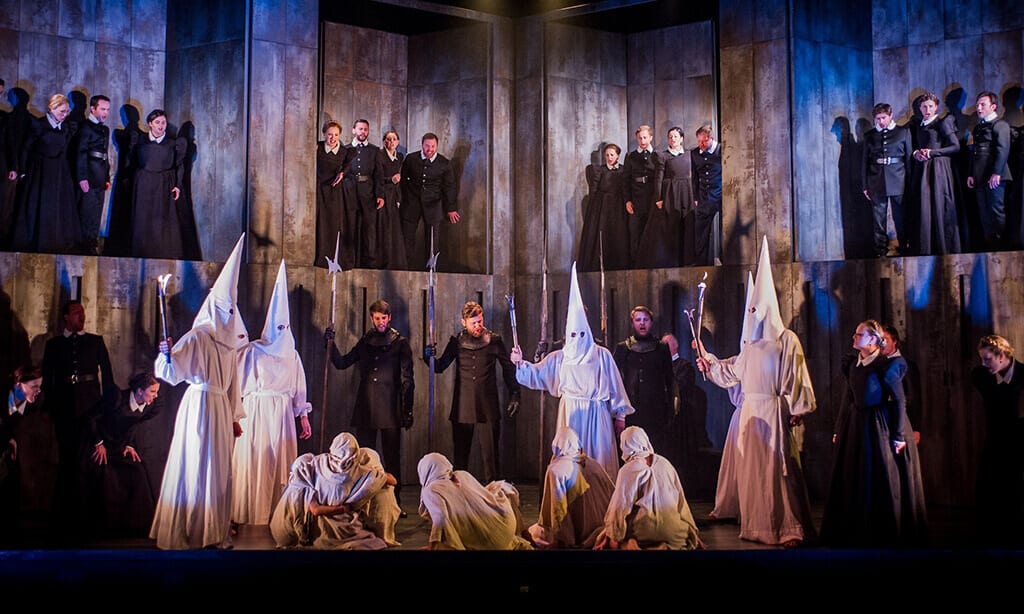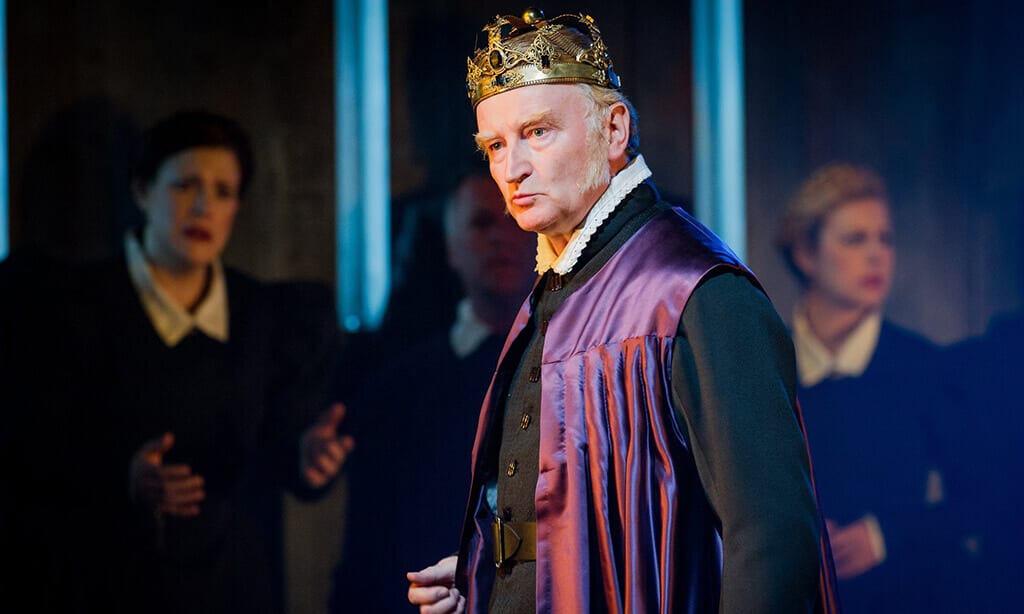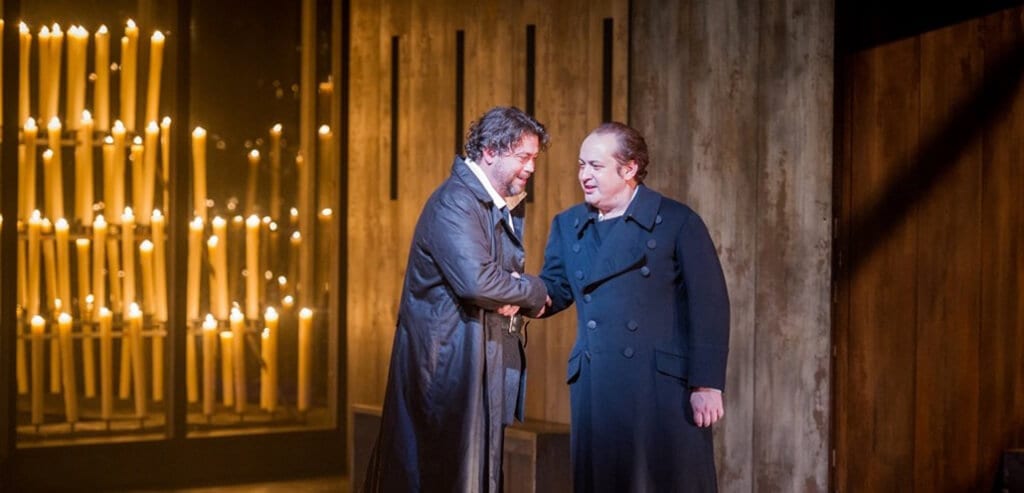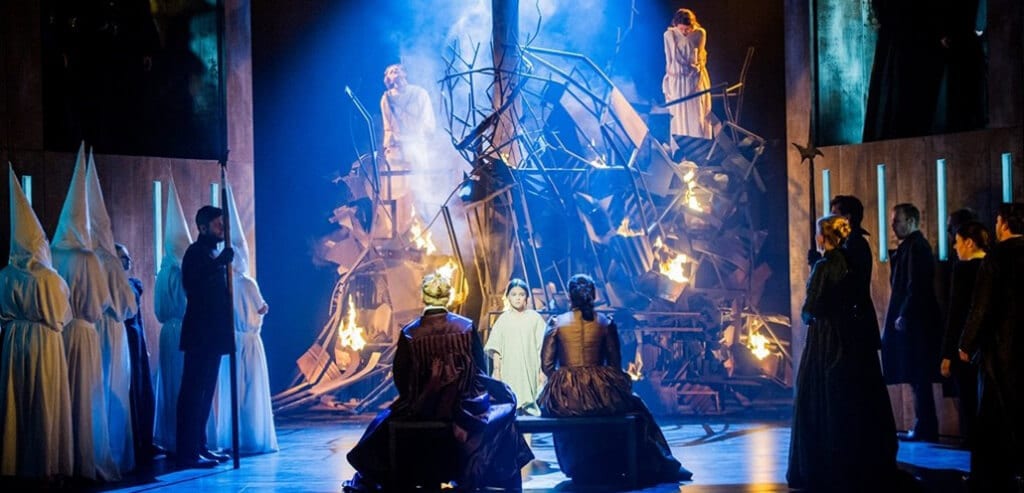The most beautiful aspect of Grange Opera Park 2016 production of Don Carlo is its intimacy combined with a minimalist elegance. This is one of Verdi’s most complex operas as it mixes politics, power, religion, idealism and love, and was composed for the Grand Opera in Paris in 1867 with all the required pomp and circumstance embedded in the text and the music. But in this production everything is reduced to the essential, the staging, the costumes and even the choice of the version, in this case the 1883 revised Milan version in Italian, which omits the original first act in Paris on 11 March 1867 where Don Carlo and Elisabetta meet and declare their love for each other which then has to be given up out of duty to the greater good of their peoples. This production also drops the ballet sequence of the Parisian original. Therefore, we get an unusually focus on an intimate portrait of the five main characters of the opera.
During the opening scene we are plunged into the darkness of the Monastery of Saint Just; grey wooden panels lit by candles with a tight triangular perspective convey the sense of religious and political oppression, which is one of the leading themes of the opera. The King Filippo II oppresses his own people and the people of his Flemish possessions, but also oppresses those closer to himself: his wife and his son. In this production he is convincingly portrayed both vocally and dramatically by Clive Bayley and appears more similar to a ruthless politician than to the usual austere king; Filippo comes across as willing to do everything to keep his power.
But scratching behind the surface we see a fragile lonely man suffering the scorn of a youthful wife that never loved him, who has no control over his emotions, who relies on other men for advice and in the end completely submits to the power of the Catholic Church, the real oppressor, represented by Verdi in the figure of the Inquisitor and here portrayed by Alastair Miles as a self-righteous tyrant, played by Miles to be vile and despicable, as he should be. The distorted use of the religious power for political ends, and vice versa, reaches its climax in the scene of the auto-da-fé, where a superstitious mob watches the burning of the heretics in a sort of cleverly staged Elizabethan theatre.
In this framework the ideals and feelings of the other characters are crushed one by one by a deaf power: the idealistic Rodrigo, who is passionately sung by David Stout, the ardent princess Eboli, of whom Ruxandra Donose gives a sensual and powerful performance thanks to a perfect control of her voice and a great stage presence, the hapless Queen Elisabetta, sung by Virginia Tola, who gives quite a shy and detached performance, and finally the mentally disturbed Don Carlo. Here Stefano Secco, who has a very beautiful and pure tenor voice, throughout the opera delivers a mixed performance: very convincing as a lover, less convincing as a rebel against the father. “Sire egli è tempo ch’io viva” didn’t have the stamina required by that musical moment.
The orchestra, conducted by Gianluca Marcianò, kept throughout to a high level in the musical phrasing and kept the dynamics of the opera always flowing, despite the unequal cast. The choir also gave a very good performance with beautiful choreography and powerful singing.
In the end this production keeps you chained to your seat, and you can also overlook the unnecessary gruesome finale with the double murder of Don Carlo and Elisabeth, which does not conform to the original ending either of the opera or of the source play by Schiller.





